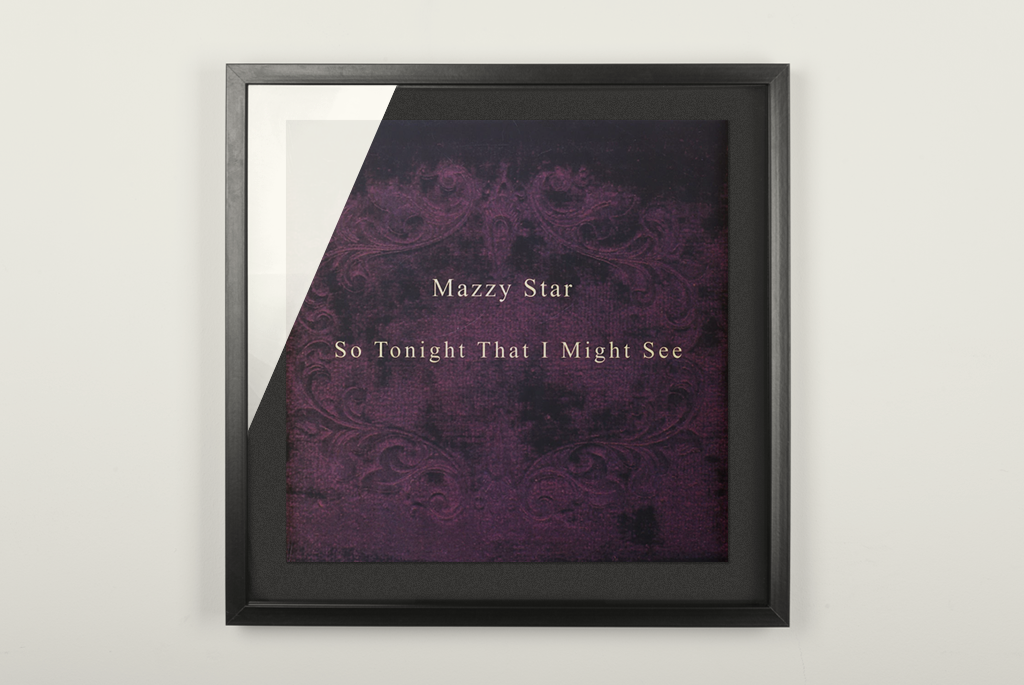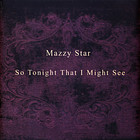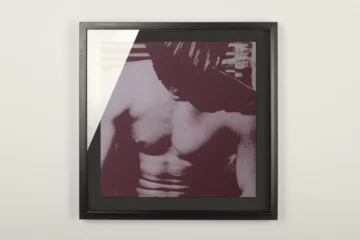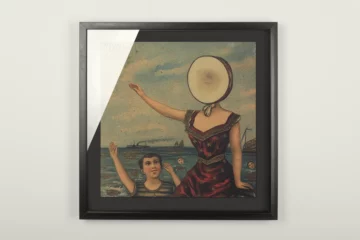If you have at least casually watched the occasional movie or TV show from the past 30 years, there is a 99.9% chance that you have heard »Fade Into You,« even if you wouldn’t be able to name the band. The opener of Mazzy Star’s 1993 album »So Tonight That I Might See« became a late-blooming Billboard Hot 100 hit and is primarily responsible for the album eventually selling more than one million copies in the USA alone, being certified platinum about a year and a half after its release. It also became the lazy go-to choice for pretty much every music advisor. You can’t blame them, really—it just works, every goddamn time.
»Fade Into You« is written in a waltz time signature, but talks about a solo slow dance. It’s a song about a profound feeling of love that can only exist at this level of intensity because it is not reciprocated. Hopefully romantic and hopelessly fatalistic, of course it is the perfect soundtrack for pretty much any angsty teenage and post-adolescent feeling. Of course they played it on »Daria.« Of course they played it on »Gilmore Girls.« Of course they played it in … »Starship Troopers.« Of course Jason Bailey, writing for Flavorwire, ranked it first on his list of »The 20 Most Overused Songs in Movies and TV.«
Bailey’s piece was published in 2013, two decades after the song’s release, and he could add plenty more movies and shows—»American Honey,« »The Handmaid’s Tale,« »Riverdale,« »Yellowjackets,« and, of course, »Euphoria«—to his already extensive list if he ever felt like updating it. But maybe, just maybe, it’s time to finally talk about the album it opens, an album full of songs that are similarly ambiguous—effortlessly cool and really, really fucking emotional at once. Oh, and also: Who the fuck were Mazzy Star, anyhow?
The Paisley Depression
Of course Mazzy Star were from California and it makes a handsome amount of sense that the roots of the band can be traced back to the most aptly dubbed musical movement ever until Donk came around: the Paisley Underground. This retroist, thoroughly psychedelic scene was where David Roback first cut his teeth as a songwriter and guitarist of bands such as Rain Parade, Rainy Day and later Opal with Dream Syndicate singer Kendra Smith.
In 1986, Roback received a demo by the duo Going Home, founded by two musicians in their early twenties. One of whom had been so thoroughly disillusioned with the world during her teenage years that she would just not go to school and listen to music instead. Her name was Hope Sandoval. Besides making music with Sylvia Gomez in Going Home, she also performed with Sonic Youth and Minutemen. Of course Roback decided to play guitar for her band.
Robacks Faible für den Sound der Sechziger und Sandovals schon-sehr-existenzielle-aber-irgendwie-distanzierte Darbietung fühlten sich am Vorabend der Grunge-Explosion tendenziell deplatziert an.
…
After the release of Opal’s debut album, Smith quit the band halfway through a tour opening for The Jesus & Mary Chain and Sandoval was enlisted to replace her. Pressured by the group’s then-label Rough Trade to record another album, they also went into the studio together to fulfil their contractual obligations. Once Sandoval realised that she was not content with singing other people’s songs, however, they wrote seven of the eleven pieces on the record from scratch and called themselves Mazzy Star.
»She Hangs Brightly« was thematically abysmal, but also wildly psychedelic—a Paisley Depression. Released in 1990, the same year as the Pixies’ »Bossanova,« Jane’s Addiction »Ritual de lo Habitual,« and Sonic Youth’s »Goo« came out, it was clearly a product of the zeitgeist, but more introspective than its contemporaries. Mazzy Star had more in common with British bands like The Stone Roses, though it is hard to imagine them necking Es at the Haçienda.
All in all, »She Hangs Brightly« was an untimely record. Roback’s penchant for all things 1960s (very few people under 40 played the slide guitar during those heydays of the US indie era) and Sandoval’s existential-yet-aloof performance (essentially inventing the whole millennial shtick, or at least laying the foundation for Lana Del Rey’s career) just didn’t really feel of the moment at the dawn of the grunge explosion. It was a good album, though.
A Gift and a Curse
»She Hangs Brightly« was released to modest commercial success by a label that was collapsing at that time, but major Capitol swept in immediately, presumably hoping Mazzy Star’s next one would match the successes of bands like Pixies, Jane’s Addiction, or Sonic Youth. It did, but that took a while, or rather a second video for »Fade Into You,« one whose black-and-white aesthetics matched the song’s Californian Gothic feel. »So Tonight That I Might See« had been released on the 27th of September in 1993, but it wasn’t until April 1994 that a larger audience got wind of it.
Anyone unfamiliar with the band who bought »So Tonight That I Might See« because they liked the single might have been somewhat disappointed once they heard the rest of the record. The My Bloody Valentine worship of »Bells Ring« with added tambourine and »Mary of Silence,« essentially »The End« by The Doors updated for the Gen X generation, just feels off after a thoroughly inspired ballad such as »Fade Into You.« However, those songs are neither derivative nor any less moving—they just ended up in the wrong place. Putting »Fade Into You« first was both an incredibly smart and dumb choice to make for an almost perfect album that only suffers from terrible sequencing.
Was am Ende einer durchwachten Nacht mit »So Tonight That I Might See« übrig bleibt, sind zehn Songs, die getrennt voneinander betrachtet nahezu perfekt sind und in Kombination miteinander ein vollkommenes Chaos bilden
…
The bittersweet, mournful strings of, well, the Arthur Lee cover »Five Stringed Serenade,« the psych-pop-meets-doo-wop-meets-surf-rock amalgam »Blue Light,« and the anthemic, stadion-ready twang rock of »She’s My Baby« similarly seem to have very little in common with each other. And that Lollapalooza booking bait of a song that is »Unreflected,« followed by the very serious blues rock number »Wasted« right before yet another acoustic ballad and finally the boundaryless title track with its feverish take on psych rock (think Les Rallizés Denudes rather than early Pink Floyd)? Hardly any of that makes sense next to each other.
No one song seems to have anything in common with the one before, or the one after it. And that was precisely Mazzy Star’s gift and their curse.
A Near-Perfect, Complete Mess
What you’re left with at the end of »So Tonight That I Might See« are ten songs which, in isolation, are all near-perfect, but, as a whole, are a complete mess. Roback and Sandoval are overflowing with ideas. From their position as outsiders, they could even make tried and tested formulas sound exhilaratingly fresh. Far from being directionless, they just didn’t have a clue how to turn the finished songs into an album. The only thing that really ties them together is their inherent emotional quality and eerie atmosphere, the wonderfully ambiguous vibe of it all.
In many ways, »So Tonight That I Might See« is exactly what you would expect from two incredibly talented musicians who have not quite yet figured out how to do this band thing on such a scale—who had the support of a major label, but were crushed by the pressure that came with it. In fact, the two went on hiatus shortly after their third album »Seasons of Your Day« was released in 1996. It was more coherent, but also tamer than its predecessors. It took Mazzy Star more than one and a half decades to return with another one to pick up where they had left off.
What Mazzy Star left behind—founding member and drummer Keith Mitchell died in 2017, Roback in 2020—might be one of the most overused songs in movies and TV, but also so much more. From its imagine-Prince-had-made-a-black-metal-album cover artwork to every last note of that beautifully untimely slide guitar, »So Tonight That I Might See« is a colourful dark mess like none other, full of depression and longing, anhedonia and existentialism. It is a deeply flawed record about the deeply flawed human experience.
Aktionen










